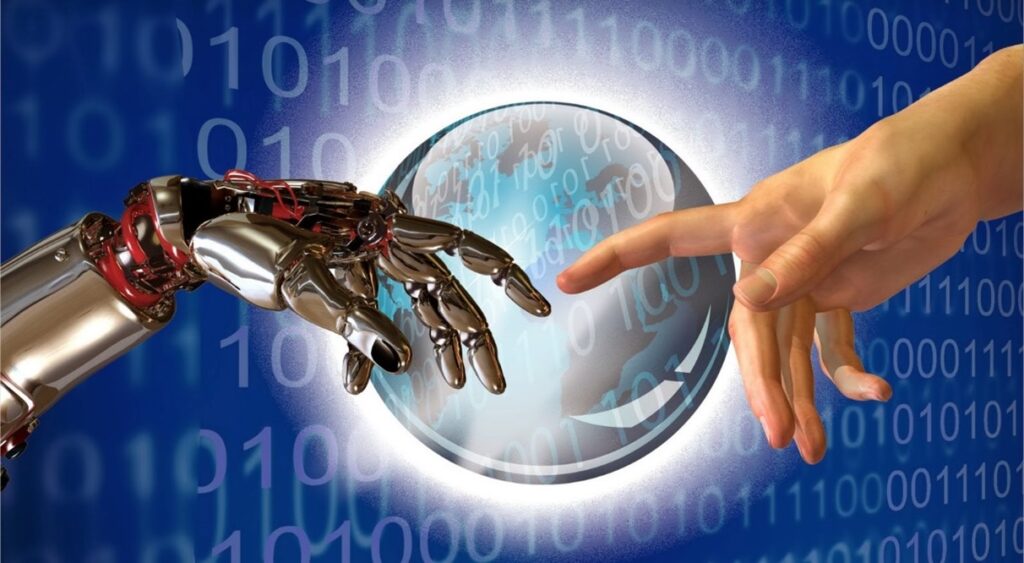The country is on a path that will see it encounter a life altering juncture in its educational and economic evolution, grappling with the formidable challenge of preparing its workforce for this new road. The road of the Fourth Industrial Revolution. The rapid technological advancements associated with 4IR -such as Artificial Intelligence (AI), big data analytics which will go under super computers – promise transformative opportunities. Yet facts on the ground are that, the alarming state of the country’s education and employment sectors cast an appalling shadow over its potential to harness these advancements.
With nearly half of children aged under six lacking access to early childhood education, and a staggering 78% of Grade Four learners unable to comprehend what they read, it is clear that systemic reform is urgently needed to prevent the nation from falling further behind. Unfortunately, South Africa’s education system is emblematic of a broader crisis. Approximately 60% of learners drop out before completing Grade 12, and just a quarter of secondary school graduates are considered work-ready, compared to 96% in countries like Singapore. Furthermore, youth unemployment hovers at a shocking 63.9%, significantly higher than the national rate and more than four times the global average. Even those who manage to matriculate face daunting challenges.
The educational system was always in need of better reform long before the ideas of super computers, AI, robotics and analytical data entered the curriculum. South Africa desperately needs to catch up with other competing nations in these sectors, most notably in the West, the Far East region and BRICS. However, standing in the way of a huge and thorough education overhaul is a static government bureaucracy and rigid political elite. A rigid political elite that is still largely corrupt. The impact of covid 19, State capture and other forms of political mismanagement have contributed to the high unemployment rate amongst the youth. The Sixty percent drop out among the school going learners in school attendance spells doom for the South African workforce and could be due to negative factors such as lack of communication in the school and home.
Domestic abuse problems could also be a factor. Psychological help is needed.
Although 29% of learners achieve a bachelor’s pass, many do so without key subjects like mathematics and science, which are critical in the digital economy. According to the 2019 Trends in International Mathematics and Science Study, South Africa ranked 38th in mathematics and 39th in science − effectively last place. If South Africa is to navigate the 4IR successfully, it must address foundational issues in education. These dismal outcomes raise profound concerns about SA’s readiness to engage meaningfully with 4IR technologies that demand highly-skilled professionals in STEM (science, technology, engineering and mathematics) fields. South Africa’s employment landscape is similarly bleak, compounded by the looming threat of automation. The IMD World Competitiveness Yearbook ranks SA at 59th out of 63 countries, reflecting a stagnant workforce largely occupied in automatable roles.
Although digitalisation offers opportunities for growth, it also exacerbates inequalities. The rise of platform-based business models and gig economy jobs – such as those provided by Uber and TaskRabbit – are reshaping employment.
More focus should be focused on developing skills such as those that require science and mathematics. The digitalization of the South African economy comes at a time when free trade is developing across Africa. The combination of the progress of the 4IR and the African Continental Free Trade Agreement (AfCFTA) can open doors for the country as a whole in so many ways. All this can be done under the banner of improving the education system through improving the skills set training for the subjects of science, technology, engineering and mathematics (STEM). The skills in art can also come under this category (STEAM). The huge elephant in the room that needs to be addressed in regards to solving unemployment is improving education. A significant amount of reform to the foundational structures is needed in accordance with AI and the 4IR to improve the standing.
Society’s economics and culture of employment is definitely changing. The young are definitely more technology savvy especially among the middle and upper classes. The poor remain largely out of touch with the latest trends. They are swamped by the harsh reality of trying to make ends meet. It is up to the state to alter their situation with the private sector’s help.
Speaking at the Southern Africa Telecommunication Networks and Applications Conference (SATNAC) being held in the Kruger Park this year, Minister of Communication and Digital Technologies, Solly Malatsi, trumped up the value of AI for South Africa. “Distinguished guests, AI is no longer a distant concept or a futuristic dream; it is here, shaping our present and defining the contours of our future. Around the world, AI is transforming industries, driving economic growth, and unlocking opportunities that we never thought were possible,” said Malatsi. “In South Africa, we are embracing this reality with urgency and optimism. The appetite for knowledge that we see across the country is a testament to our people’s ambition and readiness to lead the charge into an AI-driven economy,” the minister added.
Minister Solly Malatsi is confident in the introduction of AI to the nation. The population may be in tune with the progress of AI, supercomputers (in some aspects), robotics etc through their cell phones and I Pads. However more needs to be done to bring education and innovation to the fore front of this revolution. It needs to be in line with the economic realities of South African households. Malatsi needs to work closely with the Minister of Basic Education Siviwe Gwarube and Minister of Trade, Industry and Competition Ebrahim Patel as well as Minister of Higher Education Nobuhle Nkabane to improve the overall understanding of education in the STEAM fields as well as the understanding of the introduction to the new subjects in terms of robotics, AI, analysing data etc.
Even the Private sector needs to bring its expertise to the table and work hand in hand with the state. It all depends on how far President Cyril Ramaphosa and possibly his successors will go to make this 4IR a reality.
Article written by:
Yacoob Cassim
Journalist at Radio Al Ansaar






